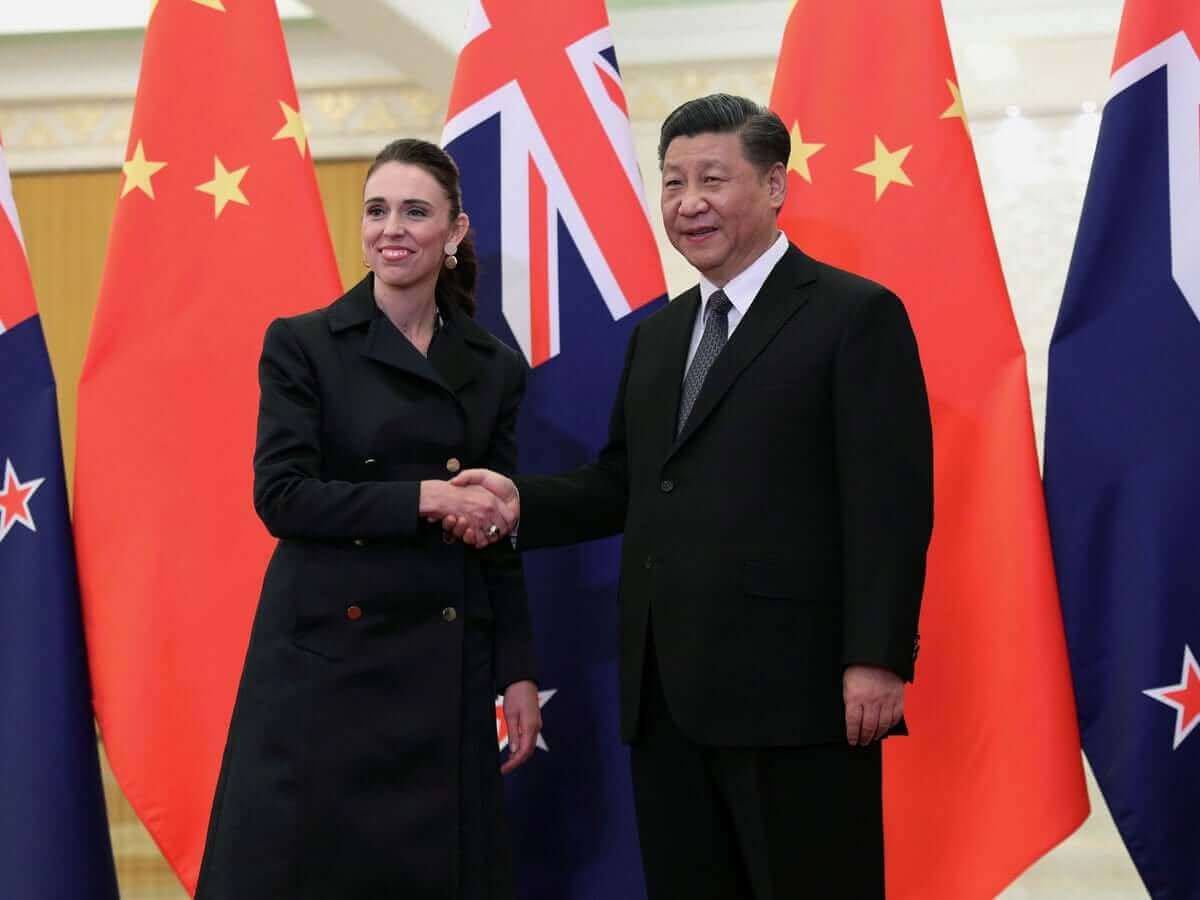During a virtual meeting with Chinese Vice Minister of Foreign Affairs Xie Feng on Wednesday, New Zealand Secretary of Foreign Affairs and Trade Chris Seed urged China to join use its “access and influence” to condemn Russia’s “unprovoked and unjustified attack” on Ukraine.
Calling on Beijing to join an international unified response against Russian aggression, Seed reiterated his prime minister’s calls for China to play the role of a mediator, a call that has also been made by Australia.
On Monday, New Zealand Prime Minister Jacinda Ardern said, “Why not encourage China to play the role that the world is looking for right now? Let’s not make an assumption on particular positioning. We don’t want to further entrench diplomatic hostility when, actually, what we all need are diplomatic solutions.”
Since the Russian invasion of Ukraine began last week, China has refused to publicly condemn Russia for its military actions. Chinese President Xi Jinping met his Russian counterpart Vladimir Putin before the opening ceremony of the Beijing Winter Olympics. Following the meeting, both sides announced a new partnership with no constraints and condemned North Atlantic Treaty Organization’s (NATO) eastward expansion plans. Furthermore, a Western Intelligence report has indicated that China asked Russia to delay its invasion of Ukraine until after the completion of the Beijing Winter Olympics, indicating that Beijing had prior knowledge of Putin’s invasion plans.
Apart from discussing hostilities in Ukraine, Xie and Seed also reviewed bilateral relations in a meeting that marked 50 years of diplomatic relations between China and New Zealand. “The bilateral relationship is multifaceted, encompassing significant economic, people-to-people, and cultural connections that have remained strong despite the challenges of COVID-19,” Seed remarked.
Green's Marama Davidson's view that NZ can use China to negotiate with Russia demonstrates an appalling naivety and ignorance of real politic. Just off the planet. Dangerous and delusional.
— Winston Peters (@winstonpeters) February 26, 2022
The pair then discussed economic and trade relations, including the implementation of the NZ-China Free Trade Agreement Upgrade Protocol, climate change, and the environment. They also addressed areas of contention, with New Zealand raising concern over human rights abuses in Xinjiang and Hong Kong, transgressions in the South China Sea, and trade disputes.
Although New Zealand has criticised China on a number of human rights issues, it nonetheless takes a more measured approach than many of its Western allies. In fact, New Zealand is the only country among the Five Eyes—an intelligence alliance comprised of Australia, Canada, New Zealand, the United Kingdom, and the United States—that has yet to ban the use of Huawei equipment in its 5G network. In fact, it has also maintained its position that the Five Eyes Alliance is an intelligence-sharing group and should not be used as a means to place pressure on China. Aside from signing an FTA with its biggest trade partner, New Zealand has also indicated its interest in China joining the Comprehensive and Progressive Agreement for Trans-Pacific Partnership (CPTPP), while China is pushing for the signing of the rival Regional Comprehensive Economic Partnership (RCEP) “as soon as possible”.
Furthermore, China is New Zealand's largest trading partner. New Zealand exports roughly $20.1 billion worth of goods and services to China each year, and imports $13.3 billion worth of goods and services from the Asian giant. Major exports from New Zealand to China include: dairy (milk powder, butter, and cheese); meat; wood; cereals; flour; and starch. Meanwhile, New Zealand imports various electronics, machinery, clothing, and furniture goods from China.
In a measure of their wide-ranging relationship, Xie and Seed also touched on pressing regional and international issues, including the multilateral system, the Pacific, and Antarctica.
This latest round of foreign affairs consultations complements other discussions that have been held virtually with China over the past year.

